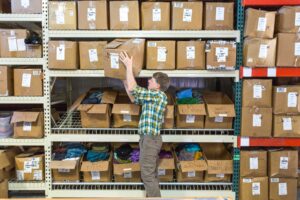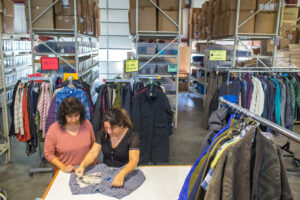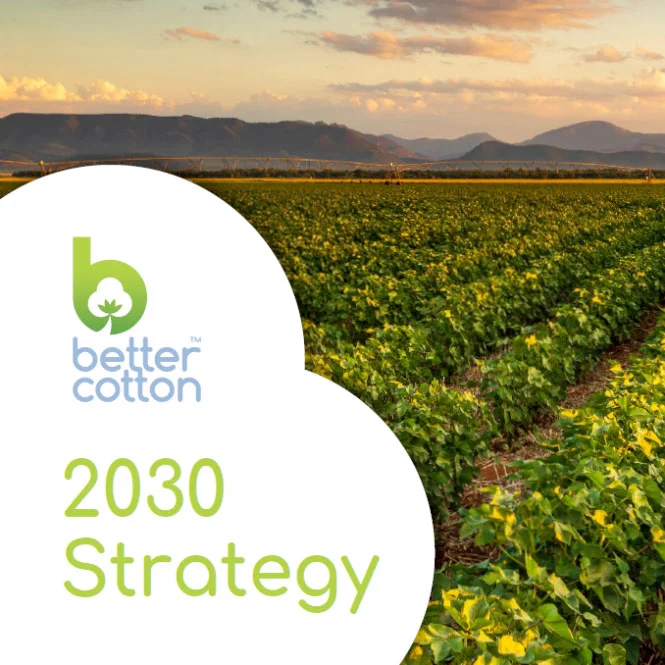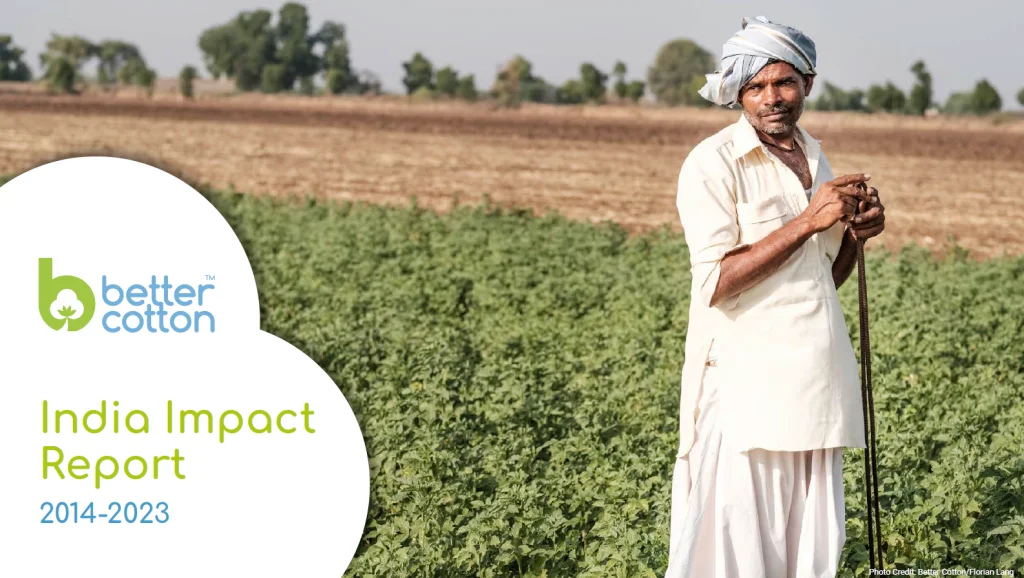- Who we are
- What we do
In just over 10 years we have become the world’s largest cotton sustainability programme. Our mission: to help cotton communities survive and thrive, while protecting and restoring the environment.
- Where we grow
Better Cotton is grown in 22 countries around the world and accounts for 22% of global cotton production. In the 2022-23 cotton season, 2.13 million licensed Better Cotton Farmers grew 5.47 million tonnes of Better Cotton.
- Our impact
- Membership
Today Better Cotton has more than 2,700 members, reflecting the breadth and diversity of the industry. Members of a global community that understands the mutual benefits of sustainable cotton farming. The moment you join, you become part of this too.
- Associate Membership
- Civil Society Membership
- Producer Organisation Membership
- Retailer and Brand Membership
- Supplier and Manufacturer Membership
- Find Members
- Member Monitoring
- Better Cotton Platform
- myBetterCotton
- Resources – Better Cotton Conference 2022
- Complaints
- Whistleblowing
- Safeguarding
- Get Involved in the Better Cotton Programme
- Thank you for contacting us
- Better Cotton’s Data Privacy Policy
- Log in
- Members’ Area
- Request for Proposals
- Better Cotton Cookie Policy
- Web Reference
- Measuring Cotton Consumption
- How to Implement the Chain of Custody Standard
- Resources – Better Cotton Conference 2023
- Certification Bodies Old
- Latest
- Sourcing
- Latest
The founding premise of Better Cotton is that a healthy sustainable future for cotton and the people that farm it is in the interests of everyone connected with it.
Let us help you find what you’re looking for
Results for {phrase} ({results_count} of {results_count_total})Displaying {results_count} results of {results_count_total}
Nicole Bassett is the co-founder of The Renewal Workshop, a business that is leading the apparel and textile industry towards circular business models, restoring value and reducing waste. We spoke with Nicole about the demand for circular approaches, barriers to change, and the potential impacts of new business models on cotton production.
What was your inspiration behind founding The Renewal Workshop?
I had been working in sustainability in the apparel industry for 15 years and I was always asking questions and looking at how we could reduce the negative impacts associated with the industry. A key issue facing many apparel or textile brands is that despite the great decisions and actions being taken to improve material and supply chain sustainability, traditional business models are broken. Every brand is reliant on making new things to grow their revenue, and it is in the making of new things that negative impacts are created. Therefore, the industry needs a business model that ensures financial growth without increasing negative impacts.
The Renewal Workshop came into being to serve brands on their journey from the current linear business model to one that is circular. We provide strategy and services to enable the renewal and reselling of products that have already been made – including items returned to a brand through warranty, returns, or via customer take-back programmes. We have operations in the USA and the Netherlands. Our operations clean, repair and certify the products to a “like new” condition. Those products are then sold via white label websites or other sales channels, which we build for brands. This allows a brand to generate revenue from their existing product, increasing their financial growth but with a lower impact on the planet.
How would you describe a circular economy or business model to someone who is new to the concept?
Our current economy is based on the evolution of the industrial revolution. The focus has been on how to turn raw materials into products, at scale, to make the most profits for those who control the means of production. This model resulted in an economy that did not think of its impact on people, nor the planet. It is often referred to as the linear economy or the ‘take-make-waste’ economy.
The circular economy by contrast thinks about the lifecycle of a product from its inception and identifies how to utilise materials in a way that generates multiple values. This model is the ‘use and reuse’ model where there is no waste, as waste is designed out from inception.
A good example of a circular business is Xerox. Originally, they sold photo copiers. Now they sell the services of photocopying – the customer pays for the use and Xerox remains the owner of the machine. Since Xerox owns the machines, they are designed for longevity, repairability and recycling.


Images: © The Renewal Workshop, 2021.
How is demand for circular models and approaches changing?
Circular business models have grown exponentially in the past 10 years, with the increase in technology startups that have unlocked the use of goods through a sharing economy. AirBnB, Uber and Lyft are examples of this. In the apparel space, the growth of online resale sites has moved millions of garments that were not being used into the hands of others who want them.
At the same time, we as people, and the planet, are directly experiencing the impacts of pollution and climate change, and we have a stronger desire to explore unwinding destructive practices into behaviours that do less harm. Therefore, new business models are being explored and circular is at the heart of that.
What key barriers exist to prevent the wider apparel and textile industry moving away from a linear approach and model?
The key barrier for the industry is mindset. A shift in mindset is the first step required for any business along the supply chain looking to transition from a linear to circular approach. Each business will need to evaluate where their products come from and where will they go at the end of use. Then businesses will need to invest in making changes towards that shift.
Fortunately, over the past 10 years, many new companies have entered the market who offer solutions that businesses can take advantage of. This includes The Renewal Workshop – we provide all the operations required to prepare products for their second life. There is also a growth of new chemical recycling companies who are able to produce fibres from old clothes. We’re seeing more innovation and more opportunities.
Any company ready to start shifting to circular should partner with solution providers. The need to accelerate this change is utmost and should be prioritised.
How will the rise in circular business models impact the world’s raw materials, including cotton?
If done correctly, the rise in circular business models will reduce the ever-growing need for virgin raw materials. The planet is finite and there is only so much land or other natural resources available. As our populations grows, there will be continuous pressure to do more with less. The need for cotton will never go away, but the demand for it may not grow at the rate it has in the past, so this is a really important metric to be tracking. What are the unintended consequences of the circular model on all stakeholders in the supply chains? Circular should be built on principles of equity and environmental responsibility.
Where have you seen real progress that inspires you?
Five years ago, when we first started The Renewal Workshop most of my conversations with brands were met with resistance. They were not interested in reselling their products as they thought it would cannibalise their new sales. What I see now is an industry understanding that resale is inevitable and many have already started investing in their own resale channels. Brands like The North Face, Cos, Carhartt, prAna, Patagonia and Levi’s to name just a few. This shows that the industry is ready to change and that the time it took to shift mindsets was shorter than I ever experienced when implementing sustainability in-house for retailers.
If you would like to learn more and join the discussion on transitioning to a circular economy, Nicole will be speaking on the March Episode of BCI’s Cotton Sustainability Digital Series: The Value of Cotton in the Circular Economy. Find out more and register here. Once registered, you will have access to a dedicated attendee forum and networking space.


